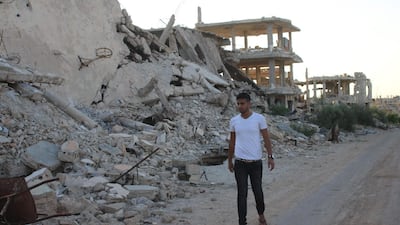Last year, the United Nations declared the world is facing its biggest humanitarian crisis since the end of the Second World War. Since then, the crisis has only escalated further. While the United Nations Office for the Coordination of Humanitarian Affairs lists current emergencies in Syria, Yemen, Ethiopia and Somalia, this is far from being a conclusive list. Humanitarian crises in Myanmar and Venezuela are to name but just two more troubling cases.
The tragedy is that with the exception of Somalia, where a severe drought is the cause of its crisis, the situation in these countries is largely man-made. There is no denial that, unfortunately, these crises are a result of failures of government and, in some cases, diplomacy.
We cannot undo history, but the international community can resolve to provide adequate humanitarian support to help relieve the suffering. Without collective and co-ordinated global efforts, these already dire situations risk spiralling further out of control.
This is where the need for humanitarian diplomacy is more vital than ever. The International Federation of Red Cross and Red Crescent Societies define humanitarian diplomacy as “persuading decision makers and opinion leaders to act, at all times, in the interests of vulnerable people, and with full respect for fundamental humanitarian principles”.
The decision to engage in humanitarian diplomacy is not a choice, but a responsibility. The UAE takes this responsibility very seriously and plays a major role in the provision of relief and development assistance around the world. The Zayed Charitable and Humanitarian Foundation and the Abu Dhabi Fund for Development—established by Sheikh Zayed before the foundation of the UAE – and institutions such as the Red Crescent Society are excellent examples of organisations taking action to support vulnerable people around the world. Indeed, our annual Zayed Day for Humanitarian Action makes ensure that everyone throughout the country remembers the importance of this issue.
The UAE’s claim to its commitment is also backed by the fact that for the fifth year running, the Organisation for Economic Co-operation and Development named the country the world’s largest official development aid donor relative to national income. More recently, the UAE Cabinet adopted a resolution granting people of countries plagued by war and natural disasters an extendable one-year stay permit.
The UAE's message of peace and prosperity is a key component of what we teach at the Emirates Diplomatic Academy (EDA). Our mission is to inculcate future diplomats with awareness of the importance of humanitarian diplomacy so that they can effectively assist other countries in identifying lasting solutions to humanitarian crises. Provision of aid and relief is one thing, however, to prevent these man-made crises from recurring, we must support economic development and political stability.
In the UAE Policy for Foreign Assistance 2017-2021, the Ministry of Foreign Affairs and International Cooperation highlights the crucial role of humanitarian aid in the UAE’s overall foreign assistance, as well as the country’s endeavours to consolidate its status as a humanitarian aid hub. The policy seeks to contribute to global efforts to achieve the United Nations’ Sustainable Development Goals.
This increased activity is creating a demand for people with the knowledge of implementing tactical humanitarian action as well as long-term strategies focused on foreseeing troubles and preventing crises or reducing their impact. Tactical expertise is geared towards the logistics of relief, while development strategy involves a wide range of factors including demographics, the impact of climate change, resource allocation and political considerations. Diplomatic skills are needed to work with the governments concerned with each situation – a reason why the EDA has introduced a new degree programme, the Master of Arts in Humanitarian Action and Development. Adopting a holistic approach to education, the programme seeks to equip graduates with the abilities to participate in fieldwork on the ground, as well as with the administrative skills required to work at the headquarters level all around the world.
Since the book A Memory of Solferino was published, humanitarian diplomacy has helped to build a unique legal architecture, but it is also a set of principles and a work in progress. This principle of humanity has to enlighten all areas and activities in the international arena, always with the aspiration to reach out more and expand this spirit as much as possible.
EDA’s Master of Arts in Humanitarian Action and Development is not just another academic degree. It is a firm validation of the UAE's intention to develop future diplomats that lead with compassion and understand the vital role of humanitarian work.
We are training the new diplomats of this country to be the future humanitarian leaders, not only for the sake of this country but for the sake of the region and humanity.
Bernardino León is Director General of the Emirates Diplomatic Academy

